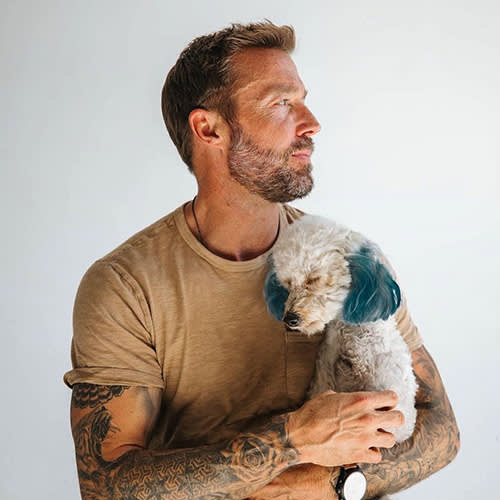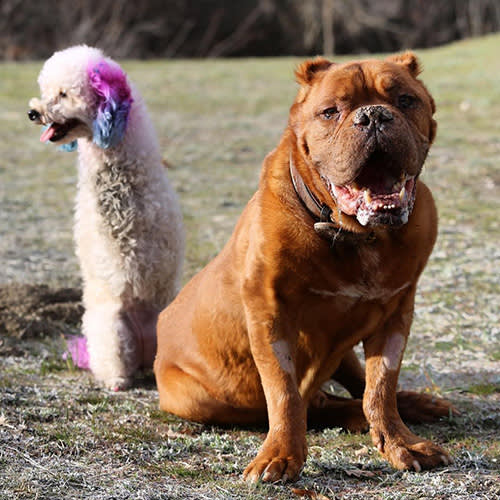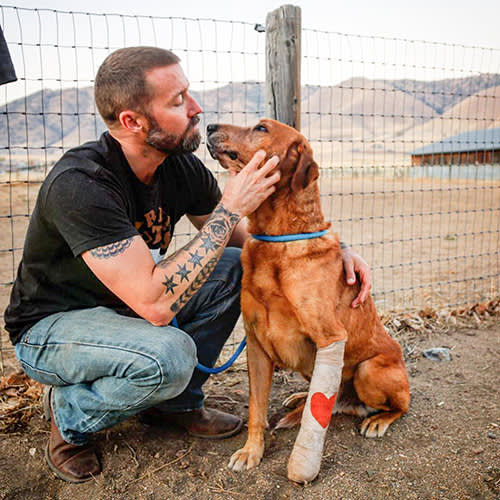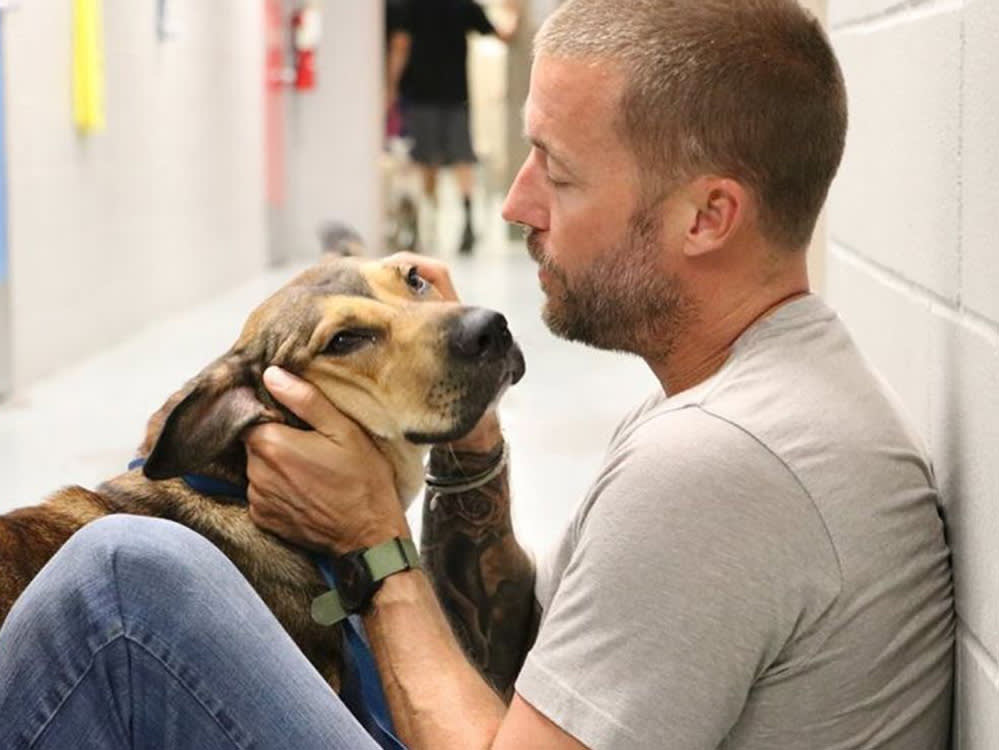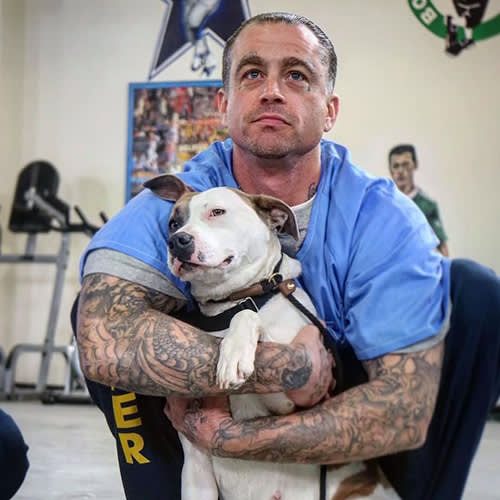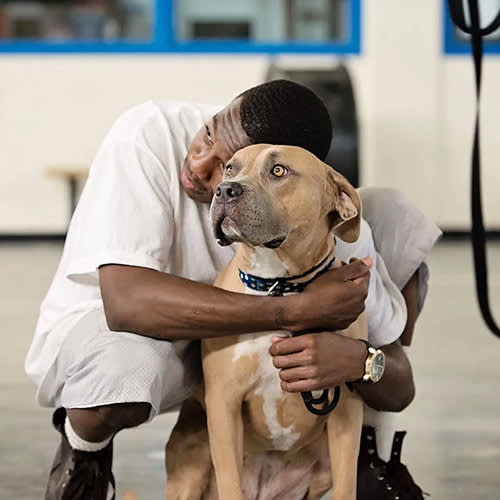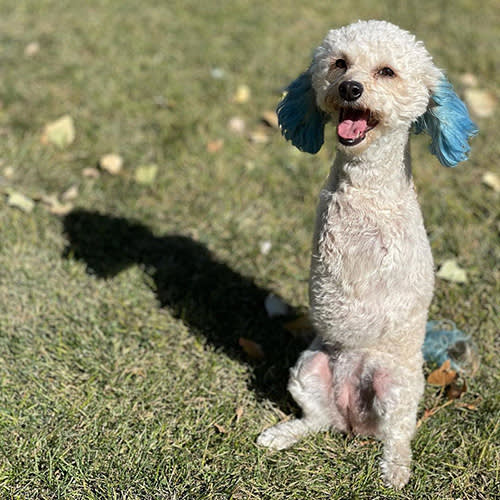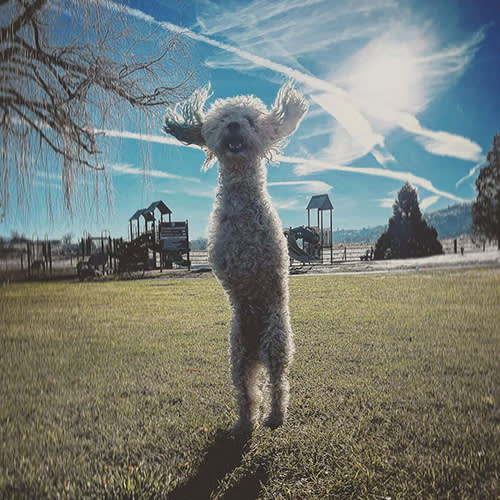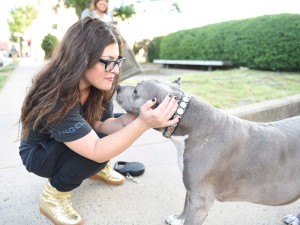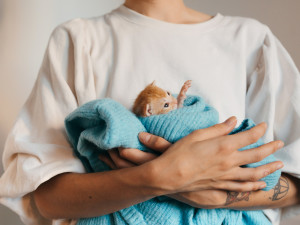Zach Skow’s Dogs Saved His Life. Now He’s Returning the Favor
The founder of Marley’s Mutts and the Pawsitive Change Program on fighting for the underdog, creating hope for people and pets, and rescuing animals from California to Kabul.
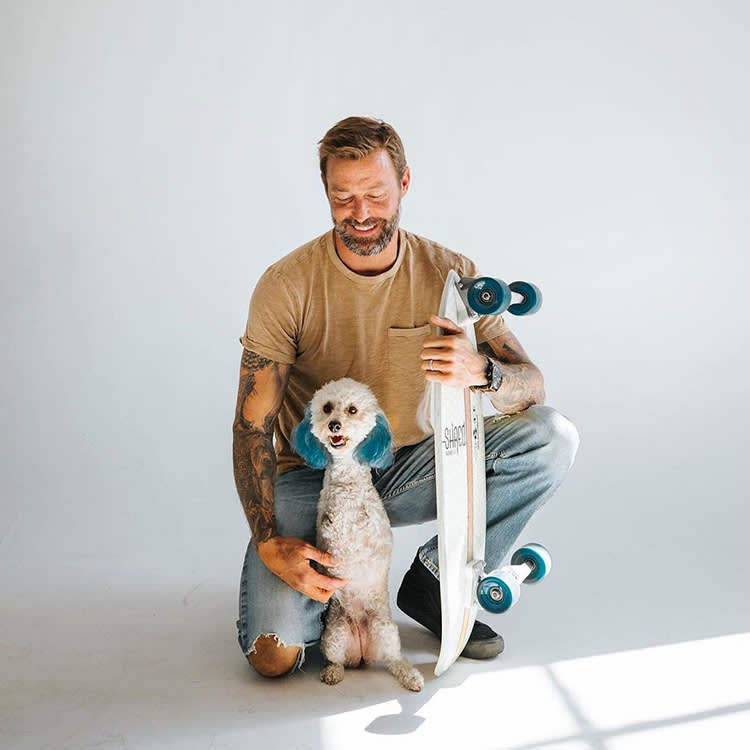
Share Article
To the Rescue is a column about visionary animal advocates.
Impossible is nothing for Zach Skowopens in new tab. After struggling with addiction in his youth and being diagnosed with liver disease when he was 28, Skow founded Marley’s Muttsopens in new tab, a California animal rescue that managed, in 10 years, to all but eliminate euthanasia in its home base of Kern County. Skow has a soft spot for the underdog, and always steps up to save the “less adoptable” dogs that otherwise languish in shelters, especially those with special needsopens in new tab. Like Hoochopens in new tab, who lost his tongue and ears in a dog fighting operation but would never hurt a fly; and instead wound up visiting schools, rehabs, and prisons as an ambassador for his breed. And Cora Roseopens in new tab, Skow’s “right-hand woman,” a double amputee who is a social media star in her own right.
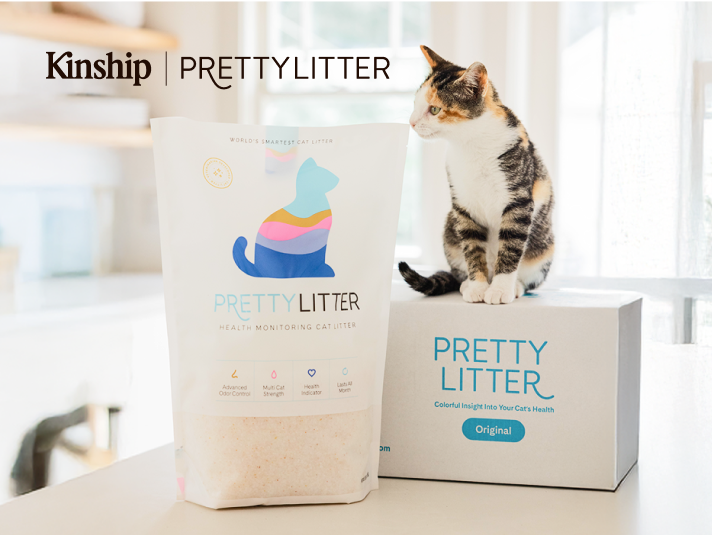
Save on the litter with color-changing tech that helps you better care for your cat.
Skow also started two humanitarian programs “to give hope and opportunity to the most vulnerable people and pets within our society.” Miracle Muttsopens in new tab trains rescues to be therapy dogsopens in new tab and provide emotional support to underserved community members, from people in addiction recovery programs and homeless shelters to kids with learning disabilities. And the Pawsitive Change Programopens in new tab matches death-row dogs with incarcerated people in Californian prisons for mutual rehabilitation. The inmates train the dogs to help get them adopted, while developing skills that will help them find jobs when they’re released.
Lest we forget, in February, Skow teamed up with SPCA International and Kabul Animal Rescueopens in new tab to evacuate 300 animals from Afghanistan to Canadaopens in new tab to be reunited with their families or adopted. Skow took a break from his awe-inspiring work to share his inspiring story of second chances with us.
Let’s start at the beginning. Tell me about Marley’s Mutts and what inspired you to start a rescue?
Marley’s Mutts in an animal rescue that I founded in 2009 after being diagnosed with end-stage liver disease. It’s called end-stage because you either die or get a liver transplant. I drank and drugged myself into that state. After five weeks, I got admitted into the Comprehensive Transplant Program at Cedar Sinai, and they helped save my life. I’d been involved in rescue prior to getting sick. In 2003, I started volunteering for local animal rescues and shelters. I really loved it, and I was really good at it. When I worked with animals, I would feel some self-love and self-worth. But I didn’t think there was any future in it.
When I got out of the hospital, I had three dogs I had adopted years prior: Marley, Tag, and Buddy. And they were just there for me. I committed to try to get better, to give myself the best chance of surviving, and to try to be there for my dogs. I walked my dogs several times a day, I added several dogs to my pack, I started fostering dogs. I had to go to the hospital for testing, and things were changing dramatically for the better. The doctor said, “I don’t know what you’re doing, but whatever it is, keep doing it.”
I was getting better and better physically, and taking in rescue dogs and taking pictures of them and writing little biographies for them and getting people to adopt them. People in my community started to take notice. And then Marley’s Mutts started very organically. We ended up creating this really profound community of animal lovers that we called the Mutt Militiaopens in new tab.
When we started the animal rescue, there was a 78% euthanasia rate in Kern country. By 2019, we had achieved no-kill. We’ve spent millions of dollars on spaying and neutering animals, and we have almost a million supporters on Facebook. Now, the organization has an office in Bakersfield where we do adoptions, and an 20-acre ranch at Tehachapi — home to about 75 animals.
You also run the program Pawsitive Change that pairs incarcerated people with shelter dogs for training. How did that come to be, and how does it work?
Well, it took us four years to get into the prison system. We were shut down at every turn. Then finally, California City Correctional Facility reached out and approved our proposal, and the rest is kind of history. We opened there in January 2016. Our entire purpose is to provide hope and opportunity for incarcerated people and pets. And it’s been incredible. Up to date, we’ve had 60 of our students be released from prison, and fully half of them are employed in the pet services industry. Almost all of them are dog trainers or kennel pet technicians.
How it works is that it’s three inmates to a dog: two primaries and an alternate, and they rotate responsibilities. The dog is trained 13.5 hours a day. The only times they’re not with somebody is when they’re eating or sleeping. They’re training for the Canine Good Citizen Certification (CGC), which is a 10-point testing certification. So for instance, one of the tests is that you bring your dog into a down and stay and then leave the room for two minutes, and the dog has to not get up. At the end of 14 weeks, we have a graduation where the dogs get their CGC, and the graduates get their Pawsitive Change Certification. Students have the ability to re-enroll as many times as they want. We’ve had some guys in our program for years.
Have people in the program been able to adopt the dogs they’ve worked with?
Many have! One guy who’s been incarcerated for 28 years was granted parole two weeks ago because of his work with Pawsitive Change. He’s getting out and his family’s adopted two of the dogs that he’s trained, so they’re going to be reunited. He’s got a training job waiting for him as well.
You also managed to find the time to transport hundreds of dogs from Afghanistan to Canada earlier this year.
We were trying to get roughly 160 dogs out of Afghanistan in August. Then, in July, the CDC banned the import of dogs from 113 countries, citing a rabies scare. It was devastating, but we wanted to complete the mission no matter what. It took forever, and there were so many moving parts. Our team managed to collect dogs that had been released at the Kabul airport, and we finally got a plan approved, and rented a plane and got 293 animals to the airport in Vancouveropens in new tab on February 1st. I still can’t believe we pulled it off.
Speaking of adopted dogs, please tell me about Cora Rose! She seems to be a celebrity in her own right.
She is indeed. She’s my right-hand woman. She’s a double-front-leg amputee. She was a street dog and totally feral when we got her. She came home basically the same week as our first daughter came home from the hospital, and she’s been my sidekick ever since. I bring her to prisons, I bring her to schools. She’s just a spiritual warrior. What she’s taught me is how you can come up against insurmountable obstacles, obstacles that should break you, and that if you don’t let it break you mentally, it won’t. Every day she learns to do something that a dog with two legs should not be able to do. Last week she figured out how to jump up onto the couch, and we haven’t figured out how she does it.
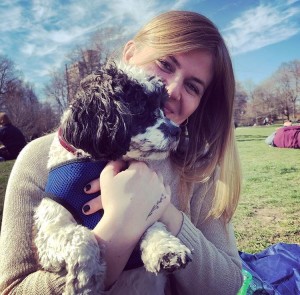
Madeleine Aggeler
Madeleine Aggeler is a freelance journalist and copywriter in Washington, D.C. Previously, she was a writer at New York magazine’s The Cut. She lives with her dog, Cleo, who works primarily as a foot warmer.
Related articles
![Rebecca Corry with her dog]()
Comedian Rebecca Corry Stands Up for Pit Bulls
“Comedy and entertainment — that’s my passion. But my purpose in life is saving dogs. And somehow I have managed to combine the two.”
![anonymous woman pampering and taking care about a small ginger kitten]()
6 Ways to Help Local Shelters Without Committing to Full-Time Pet Parenthood
Learn how you can be there for animals in need this National Pet Day.
![A man holding a dog in a crowded space in Ukraine.]()
How You Can Help Ukraine’s Animals
These Ukrainian rescue organizations need our support. Here’s how to get it to them ASAP.
